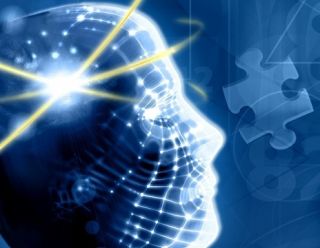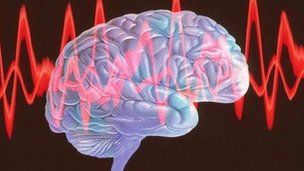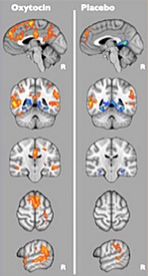Oxytocin
Can Oxytocin Improve Brain Function in Children With Autism?
There is ongoing debate about the benefits of nasal oxytocin for treating ASD.
Posted December 4, 2013

A new study from Yale School of Medicine has found that a single dose of the hormone oxytocin, delivered via nasal spray, can enhance brain activity while processing social information in children with autism spectrum disorders (ASD).
Oxytocin is known colloquially as the “love hormone.” This neuromodulator is secreted by the pituitary gland and gives animals a biological urge to nurse their pups, drives male prairie voles to stay monogamous, and has been shown to make human beings more trusting of one another.
Oxytocin is released during childbirth and lactation. It is also released in response to touch and during sexual relationships suggesting it plays a role in human bonding. Oxytocin has been linked to the biology of forming intimate emotional relationships. In addition to these aspects of oxytocin, a new study titled “Oxytocin Enhances Brain Function in Children With Autism” was published in the December 2, 2013 issue of Proceedings of the National Academy of Sciences.
"This is the first study to evaluate the impact of oxytocin on brain function in children with autism spectrum disorders," said first author Ilanit Gordon, a Yale Child Study Center adjunct assistant professor, whose colleagues on the study included senior author Kevin Pelphrey, the director of the Center for Translational Developmental Neuroscience at Yale.
These results are part of an ongoing, large-scale study by Yale School of Medicine. The researchers at Yale have found that a single dose of oxytocin can increase brain function in regions that are known to process social information in children and adolescents with autism spectrum disorders.
A wide range of studies suggest that oxytocin plays a key role in social behavior and social understanding. Although oxytocin secretion is typically correlated with increased trust, reduced fear, and improved emotional recognition—its benefits regarding ASD remain controversial.
Some Doubts on the Efficacy of Nasal Oxytocin for Treating ASD

There has been much debate about the efficacy of using oxytocin nasal spray to treat ASD. A July 2013 study from the University of New South Wales (UNSW) found "no benefits" from using oxytocin to treat autism. Professor Mark Dadds, of the UNSW School of Psychology, acknowledges that many previous studies have suggested that oxytocin could have benefits for children with the disorder—and concedes that there may be a subgroup of children with ASD for whom oxytocin could be beneficial.
"Many parents of children with autism are already obtaining and using oxytocin nasal spray with their child, and clinical trials of the spray's effects are underway all over the world. Oxytocin has been touted as a possible new treatment, but its effects may be limited," Professor Dadds says. "We found that, compared to a placebo, oxytocin did not significantly improve emotion recognition, social interaction skills, repetitive behaviors, or general behavioral adjustment," said Professor Dadds.
The children with autism in the UNSW study were assessed twice before treatment, three times during the treatment week, immediately afterwards and three months later, with a parent present. Factors such as eye contact with the parent, responsiveness, warmth, speech, positive body language, repetitive behaviors, and recognition of facial emotions were observed.
Research in people who are healthy shows oxytocin can increase levels of trust and eye-gazing and improve their identification of emotions in others. "One likely possibility is that many children with autism have impaired oxytocin receptor systems that do not respond properly," Professor Dadds added. "But there may be a subgroup of children for whom oxytocin could be beneficial, and research is needed to determine who responds to it and how best to deliver it," he concluded.
Proof Positive of Oxytocin’s ASD Benefits

The research team at Yale first reported on the potential benefits of nasal oxytocin for improving brain function of children with ASD in May 2012. At the time Ilanit Gordon said, "Our findings provide the first, critical steps toward devising more effective treatments for the core social deficits in autism, which may involve a combination of clinical interventions with an administration of oxytocin. Such a treatment approach will fundamentally improve our understanding of autism and its treatment."
For the study published December 2013, Gordon, Pelphrey, and their Yale colleagues conducted a double-blind, placebo-controlled study of 17 children and adolescents with autism spectrum disorders. The participants, between the ages of 8 and 16.5, were randomly given either oxytocin spray or a placebo nasal spray during a task involving social judgments.
"We found that brain centers associated with reward and emotion recognition responded more during social tasks when children received oxytocin instead of the placebo," said Gordon. "Oxytocin temporarily normalized brain regions responsible for the social deficits seen in children with autism."
Gordon said oxytocin facilitated social attunement, a process that makes the brain regions involved in social behavior and social cognition activate more for social stimuli (such as faces) and activate less for non-social stimuli (such as cars). "Our results are particularly important considering the urgent need for treatments to target social dysfunction in autism spectrum disorders," Gordon added.
Conclusion: Does Oxytocin Have a Dark Side?
The social-communicative dysfunctions at the a core of autism can have an enormous emotional and financial burden on the affected individual, their families, and society. Gordon concludes that while a great deal of progress has been made in the field of autism research, there remain few effective treatments and none that directly target the core social dysfunction.
As with most neurodevelopmental disorders, taking a multipronged approach when treating autism is likely to increase positive outcomes. If you are a parent or caregiver considering oxytocin to improve the brain function of a child with ASD, you should speak with your child's physician and weigh the cost and potential negative side effects of administering nasal oxytocin.
There is some concern that oxytocin may have a dark side in the general population. A 2010 study published in Science concluded that doses of oxytocin made people more likely to favor the "in-group" at the expense of an "out-group." The principal author of the study on oxytocin’s dark side was Carsten K. W. De Dreu, a psychologist at the University of Amsterdam. In terms of people with autism spectrum disorders, these concerns may be negligible, but they are worth noting.
Bruno B. Averbeck, an expert on the brain’s emotional processes at the National Institute of Mental Health, said that the effects of oxytocin described in Dr. De Dreu’s report were interesting but potentially dubious. He believes, that the brain weighs emotional attitudes like those prompted by oxytocin against information available to the conscious mind which is a very individual and complex process.
Averbeck adds, “If there is no cognitive information in a situation in which a decision has to be made, like whether to trust a stranger about whom nothing is known, the brain will go with the emotional advice from its oxytocin system, but otherwise rational data will be weighed against the influence from oxytocin and may well override it.”
Dr. Averbeck is intrigued that a substance like oxytocin can affect such high-level human behavior. He said, “It’s really surprising to me that this neurotransmitter can so specifically affect these social behaviors.” Although the jury is still out on whether oxytocin can improve brain function in children with autism, the potency of the ‘"love hormone" seems undeniable.
If you’d like to read more on this topic, please check out my Psychology Today blog posts:
- “The Neurobiology of the “Love Hormone” Revealed”
- “Autism Gene Can Disrupt Connections Between Brain Areas”
- "One More Reason to Unplug Your Television"
- “Hand-Eye Coordination Improves Cognitive and Social Skills”
- “Loving Touch Is Key to Healthy Brain Development”
- “How Is the Cerebellum Linked to Autism Spectrum Disorders?”
- “Neuroscientists Discover Why Men Are from Mars”
- “Pollution and Maternal Stress Harm Babies During Development”
- “The “Love Hormone” Drives Human Urge for Social Connection”
Follow me on Twitter @ckbergland for updates on The Athlete’s Way blog posts.




